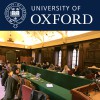Interaction between Hard Law and Soft Law in United Nations Law-Making
The paper begins by examining the considerations that have encouraged the use of 'soft' law instruments in UN law-making. The literature identifies at least four reasons. First, it may be easier to reach agreement when the form is non-binding. Secondly, soft law instruments are more flexible. They will normally be easier to supplement, amend or replace than treaties, since all that is required is the adoption of a new resolution by the relevant international institution. Thirdly, it may be easier for some states to adhere to non-binding instruments because they can avoid the domestic treaty ratification process and perhaps escape democratic accountability for the policy to which they have agreed. Last, soft law instruments may provide more immediate evidence of international consensus on an agreed text than a treaty whose impact is qualified by reservations and the need to wait for ratification and entry into force. The bulk of the paper reviews the purposes for which soft law has been employed by the UN: declaratory law-making, codification and progressive development, facilitating treaty negotiation, interpretation of treaties, and subsidiary rules and standards. The paper concludes by observing that soft law is not the paradox portrayed in some of the literature. It is the product of an increasingly sophisticated legal system. It needs to be understood, not simply dismissed as something that is not law.
Alan Boyle was Professor of Public International Law at the University of Edinburgh School of Law from 1995 until 2017. He taught international law, international environmental law, and law of the sea. Publications include International Law and the Environment (with Catherine Redgwell) (4th edn, OUP, 2018) and The Making of International Law (with Christine Chinkin) (OUP, 2007). He is a barrister and continues to practise international law from Essex Court Chambers, London. Professor Boyle has appeared as counsel before the ICJ, the International Tribunal for the Law of the Sea, and UNCLOS arbitral tribunals.




